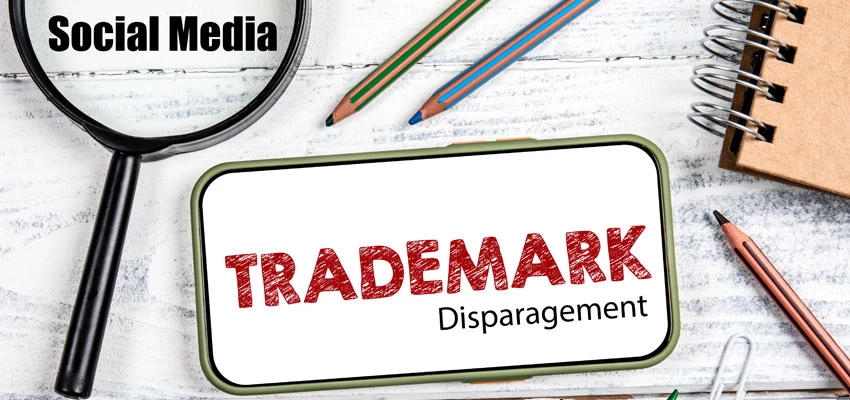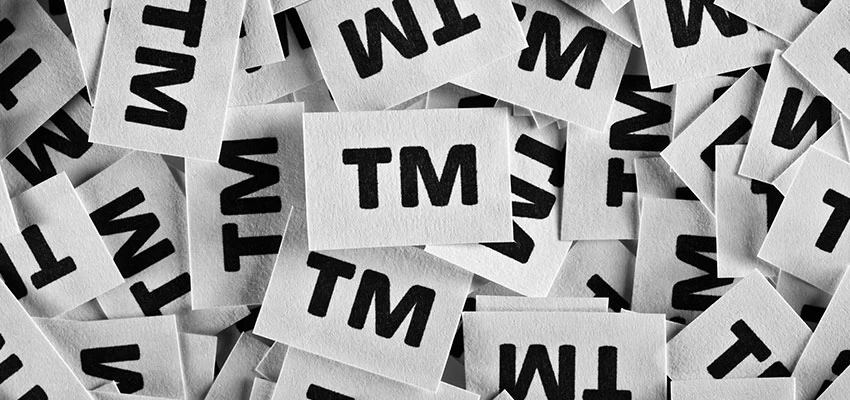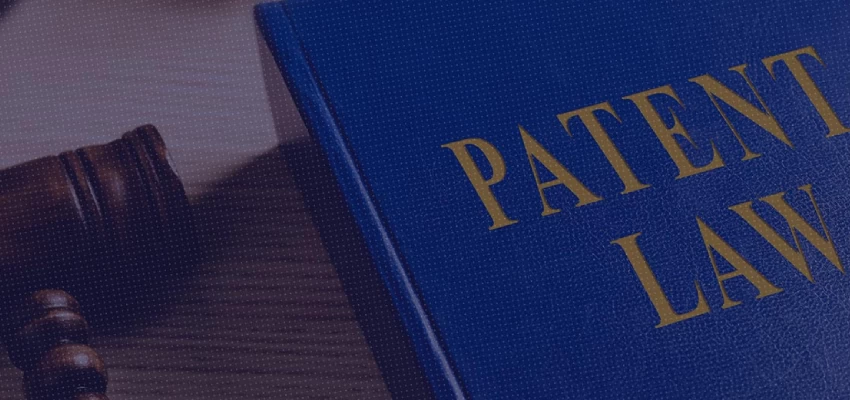We in India, are a democracy of a ceremonial executive, i.e., the President, in a parliamentary republic which consists of a system based on principles of collective leadership with the Prime Minister as the head of the government, who is also accountable to the legislature and the executive.[1] To put it simply, ‘Executive’ is an individual or a body of individuals who look after the implementation of rules and regulations in actual practice.[2] The four pillars of the Democracy are legislature, executive, judiciary and the press.[3] Although, constitutionally speaking we are a country with a three-tier-machinery of government, i.e., the legislature, executive and judiciary, who work in a cooperative and coordinated manner to balance each other whilst practicing separation of power.
In the judgment of the Division Bench (Two-Judge Bench) of the Delhi High Court in the matter of Promoshirt SM SA v. Armassuisse and Anr., (2023: DHC: 6352-DB) dated 6 September 2023, a subtle distinction was made between the duties of executive in the shadow of judicial powers. The Delhi High Court in the above judgment held that Letters Patent Appeal is allowed in trademark appeals and that a bar on such intra-court appeals as provided under Section 100A of Civil Procedure Code (CPC), 1908, do not apply to Letters Patent powers of High Courts with regard to trademark disputes as they are saved by virtue of Section 4 and 104 of CPC.
Facts:
Promoshirt SM SA (Promoshirt) applied to register the trademarks “SWISS MILITARY” in Class 25 for clothing, readymade garments, footwear, headgear, coats, overcoats, jackets, jerseys, undergarments, socks, and the device mark in Class 25 for textile industries, on a ‘proposed to be used’ basis. Promoshirt was successful in obtaining the registrations from the Trade Marks Registry despite the oppositions by Armassuisse, a Federal Agency of the Swiss Federation working to procure armaments for Switzerland’s Federal Department of Defence, Civil Protection and Sport, representing military wing of the Swiss Government. Aggrieved by the order of the Deputy Registrar of Trademarks, Armassuisse appealed against the grant of trademark registrations to Promoshirt before the Delhi High Court (DHC). The Single Judge by a judgment dated 4 January 2023 decided the matter in favour of Armasuiusse thereby rejecting the trademark registrations of Promoshirt on the basis that the marks are ineligible for registration under Section 2(1)(i)(I) read with Section 9(2)(a) of the Trade Marks Act, 1999 (impugned judgment).
Aggrieved by the impugned judgment, Promoshirt filed a Letters Patent Appeal (LPA) assailing the same, before the Division Bench of DHC.
The maintainability of the LPA was the first and primary contention taken by Armassuisse and the present discussion pertains to the judgment of the Division Bench, dated 6th September 2023, on the maintainability aspect of the LPA, in light of Section 100A of the Code of Civil Procedure, 1908 (CPC).
Issue:
Whether the right of appeal as available under Letters Patent Act would be taken away by virtue of Section 100A of the Civil Procedure Code, 1908 in respect of matters arising under special enactments such as the Trademarks Act, 1999?
Relevant provisions for this discussion:
Section 91 of the Trademarks Act, 1999 (TM Act) as amended by the Tribunal Reforms Act, 2021:
“91. Appeals to High Court
- Any person aggrieved by an order or decision of the Registrar under this Act, or the rules made thereunder may prefer an appeal to the High Court within three months from the date on which the order or decision sought to be appealed against is communicated to such person preferring the appeal.
- No appeal shall be admitted if it is preferred after the expiry of the period specified under sub-section (1): PROVIDED that an appeal may be admitted after the expiry of the period specified therefor, if the appellant satisfies the High Court that he had sufficient cause for not preferring the appeal within the specified period.
- An appeal to the High Court shall be in the prescribed form and shall be verified in the prescribed manner and shall be accompanied by a copy of the order or decision appealed against and by such fees as may be prescribed.”
Section 2(14) of the CPC:
- 2(14) - “order” means the formal expression of any decision of a Civil Court which is not a decree.
”Section 100A of the Code of Civil Procedure, 1908 (CPC)
- “100A. No further appeal in certain cases.- Notwithstanding anything contained in any Letters Patent for any High Court or in any other instrument having the force of law or in any other law for the time being in force, where any appeal from an appellate decree or order is heard and decided by a Single Judge of a High Court, no further appeal shall lie from the judgment, decision or order or such Single Judge in such appeal or from any decree passed in such appeal.”
Contentions by Armassuisse:
Armassuisse contended that by passing the impugned judgment of setting aside the grant of Promoshirt’s trademark registrations, the Single Judge was exercising an appellate jurisdiction as provided under Section 91 of the TM Act. Therefore, it was contended that the present LPA falls squarely under Section 100A of CPC, thus rendering the present intra-court appeal as not maintainable as the plain reading of the express language of Section 100A bars the same.
It was further contended that the legislative intent of introducing Section 100A of CPC by way of an amendment in 2002 was to minimize the sphere of appeals thereby overshadowing the right that otherwise would be available by virtue of an LPA. A comparison was drawn between Section 109(5) of the TM Act 1958[4] (Act of 1958) with that of the Section 91 of the TM Act,1999, to contend that the Act of 1958 provided for an appeal against a judgment or order of the Single Judge whereas the present TM Act, 1999, does not have such a provision. Thus, it was contended that the legislative intent was not to allow appeals from the order of a Single Judge when such order was passed in the exercise of appellate jurisdiction. It was submitted that the issue was no more res integra and was settled in their favour by various judicial precedents.
Armassuisse relied on an array of judgments to establish that Section 100A had an overriding effect on the LPA.[5] It was contended that by virtue of its introduction by way of a CPC amendment act, 2002, Section 100A takes away the vested legal right that was earlier the general legal principle regarding an appeal, thereby eliminating intra-court appeals to a Division Bench within the same court from an order of the Single Judge.[6] The intention, it was contended, of Section 100A was to bar LPAs against judgments rendered by a Single Judge in appeals arising from original or appellate decrees or orders, irrespective of the statute governing the matter.[7] It was contended that the position that LPA was barred under Section 100A was solidified[8] despite the savings clause provided for under Section 4 and 104 of CPC. It was further contended that the legislature has the competence to amend or abolish Letters Patent therefore Section 100A applies uniformly[9] to other enactments and extends to other special enactments.[10] Armassuisse also contended that Section 100A is to be given a purposive interpretation and must be understood such that multiple appeals against interlocutory orders as well as a final judgment is barred.[11]
Contentions by Promoshirt:
Promoshirt contended that by a plain reading of Section 100A it is evident that the restriction created thereby is only against an order, judgment and decree passed by a Single Judge while exercising their appellate jurisdiction. Therefore, by definition a decree,[12] a judgment,[13] and an order[14] must be initially passed by a judge[15] in a Court.[16] A Registrar of Trademarks, it was asserted cannot be accorded the status of a judge of Court nor qualify as a judge of a Court. It was asserted that the office of the Registrar of Trademarks does not have the powers of a Civil Court. Hence, it was contended that although the Registrar is conferred the powers of the Civil Court,[17] the orders passed by the Registrar does not qualify as an order of the Court. Therefore, the Registrar of Trademarks is an Executive responsible to grant Trademarks who also happens to have the powers of Civil Court, ONLY to receive evidence, administer oath, enforce witness attendance and their examination, compel discovery and production of documents, but is not a Court in any other sense. It was further contended that a right to appeal is a creation of statute and once the appeal reaches a High Court then the procedure is governed by that of the concerned Court.[18] Therefore, if the statute that provides the procedure of the concerned Court expressly bars an appeal, only then does a right to appeal get restricted and not otherwise.[19]
In support of their contentions, Promoshirt relied on a batch of judicial precedents. Promoshirt contended that even under Section 70(a) of the TM Act 1940, the Registrar had the powers of the Civil Court thereby allowing the Registrar to have all the ‘trappings of the court’. However, this does not elevate them to the status of a Court[20] and cannot be considered as a Court in the strict sense of exercising judicial power.[21] It was further contended that ‘Civil Court’ is a body established to administer justice, the same definition cannot be extended to those bodies, authorities or tribunals that are established under special legislations.[22] A decree, it was contended, was only passed by a ‘Court’ wherein a suit commenced by the institution of a plaint to adjudicate a dispute by a judgment pronounced by a Court,[23] therefore the order of the Registrar does not qualify to be a decree or an order of the Court.
Decision of the Division Bench:
The Division Bench (DB) in this judgment penultimately considered Clause 10 of the Letters Patent and stated that it bars third appeals before a Division Bench. Therefore, the question to be considered was whether Section 100A of the CPC bars even a second appeal which is otherwise maintainable before the Court from an order of a Single Judge. The DB noted that the entire discussion boils down to three separate and distinct streams of authorities:[24]
- Those which pertained to matters directly governed by the CPC;
- Those which pertained to proceedings which were originally initiated before a Civil Court;
- Thirdly, those which dealt with the question of applicability of Section 100-A of the CPC rendered by Courts and tribunals which were ordained to be Civil Courts by virtue of a statutory provision or those which were recognized to have trappings of a Civil Court.
The DB ultimately held that Clause 10 of Letters Patent bars third appeals and operates when a Single Judge has heard and decided a second appeal that may have been preferred in respect of a decree or order passed by a subordinate court in exercise of its appellate jurisdiction. However, an LPA is still allowed, in terms of the subsequent part of Clause 10, provided the Single Judge issues a certificate of fitness for such appeal. The DB went on to hold that a bar provided under Section 100A depends on two things:
- Whether TM Act specifically provides for an express bar on an appeal;
- The decree on which the Single Judge decides is given by a ‘civil court.’
The DB further took note of the various versions of the TM Act over the years and also the amendments to the same and observed that unlike TM Act 1940 and 1958, the TM Act 1999 does not explicitly subject the TM Act to the purview of the provisions under CPC.
The DB further relied on the decision of Anglo-French Drug Co.[25] and Khoday Distilleries[26] and held that registrar of trademarks does not qualify to be a ‘court’; also, since the preamble of the CPC provides that it is applicable to procedure of ‘courts of civil judicature’, the Letters Patent powers of High Courts are saved by virtue of Section 4 and 104 of CPC. It was additionally held that, if such a bar as provided under Section 100A is allowed then the whole purpose of intra-court appeal and the intention to provide such a remedy by appeal would fail. In the light of such a deliberate action by the legislature it was held that Section 100A does not bar the LPA.
Conclusion
Given the instant judgment, it is possible to draw parallels to other wings of the bundle of legislations, that is, intellectual property rights laws. The Tribunal Reforms Act, 2021, made several amendments to the IPR laws in India, one such amendment is the abolition of the Intellectual Property Appellate Board (IPAB). Consequently, amendments were made, among other provisions, to Section 72 of the Copyright Act, 1957; Section 117A of the Patents Act, 1970; Section 31 of the Geographical Indications of Goods (Registration and Protection) Act, 1999; Section 56 of the Protection of Plant Varieties and Farmers' Rights Act, 2001, and as discussed above to Section 91 of the Trade Marks Act, 1999, wherein appeals may now be preferred to the High Court from the order of the authorities under the respective IPR laws. Given that the appeal provisions in the other IP statutes are largely pari materia, parties may contemplate intra-court appeals before the Division Bench of the respective High Courts hearing appeals against orders of the Registrars or Controllers on the basis that such orders do not qualify to be considered as an Order of the ‘subordinate court’ as provided for under Section 100A of CPC. It however remains to be seen if the interpretation as laid down by the DB of the Delhi High Court withstands further judicial scrutiny, if any.
[The authors are Partner and Associate, respectively, in IPR practice at Lakshmikumaran & Sridharan Attorneys]
- [1] https://ncert.nic.in/ncerts/l/keps204.pdf
- [2] Ibid
- [3] https://transformingindia.mygov.in/democracy-rests-on-four-pillars-legislature-executive-judiciary-and-the-press/
- [4] When an appeal is heard by a Single Judge, a further appeal shall have the power to make any order which the Registrar could make under this Act.
- [5] Kamal Kumar Dutta & Anr. v. Ruby General Hospital Ltd. & Ors., (2006) 7 SCC 613
- [6] Kesava Pillai Sreedharan Pillai & etc. v. State of Kerala & Ors., 2003 SCC OnLine Ker 293
- [7] Rouf Ahmad Zaroo v. Mst. Shafeeqa, 2014 SCC OnLine J&K 137
- [8] P.S. Sathappan v. Andhra Bank Ltd. [(2004) 11 SCC 672]
- [9] Supra at 7
- [10] United India Insurance Co. Ltd., Palamaner Branch, Tirupathi v. S. Surya Prakash Reddy & Ors., 2006 SCC OnLine AP 434
- [11] Mohd. Saud & Anr. v. Dr (Maj.) Shaikh Mahfooz & Ors., (2010) 13 SCC 517
- [12] Section 2(2) of CPC “decree” means the formal expression of an adjudication which, so far as regards the Court expressing it, conclusively determines the rights of the parties with regard to all or any of the matters in controversy in the suit and may be either preliminary or final. It shall be deemed to include the rejection of a plaint and the determination of any question within 3*** section 144, but shall not include-
(a) any adjudication from which an appeal lies as an appeal from an order, or
(b) any order of dismissal for default.
Explanation.—A decree is preliminary when further proceedings have to be taken before the suit can be completely disposed of. It is final when such adjudication completely disposes of the suit.
It may be partly preliminary and partly final;
- [13] Section 2(9) of CPC “judgment” means the statement given by the Judge of the grounds of a decree or order
- [14] Section 2(14) of CPC “order” means the formal expression of any decision of a Civil Court which is not a decree;
- [15] Section 2(8) of CPC “Judge” means the presiding officer of a Civil Court;
- [16] ‘Court’ is not defined under CPC or General Clauses Act,1977. However, Indian Evidence Act, 1872, under Section 3 defines ‘Court’, “to include all Judges and Magistrates, and all persons, except arbitrators, legally authorised to take evidence.”
- [17] Section 127 of TM Act 1999
- [18] National Sewing Thread Co. Ltd. v. James Chandwick & Bros. Ltd., (1953) 1 SCC 794
- [19] Mahli Devi v. Chander Bhan & Ors., 1995 SCC OnLine Del 247
- [20] The Anglo-French Drug Co. (Eastern) Private Ltd. v. R.D. Tinaikar., 1957 SCC OnLine Bom 165
- [21] Privy Council in Shell Co. of Australia v. Federal Commissioner of Taxation, [[1931] A.C. 275.]
- [22] Nahar Industrial Enterprises Ltd. v. Hong Kong and Shanghai Banking Corpn., (2009) 8 SCC 646
- [23] Paramjeet Singh Patheja v. ICDS Ltd. (2006) 13 SCC 322
- [24] Para 40 of the Judgment
- [25] Supreme Court of India (Supra at 20)
- [26] Khoday Distilleries Ltd. v. Scotch Whisky Association & Ors. (2008) 10 SCC 723 (Division bench of the Bombay High Court)











